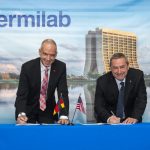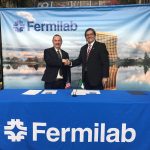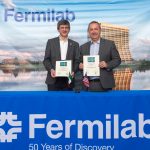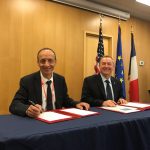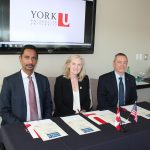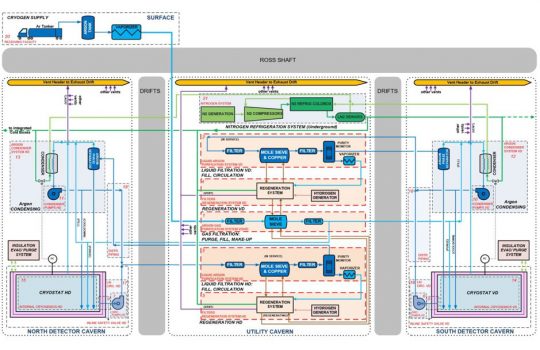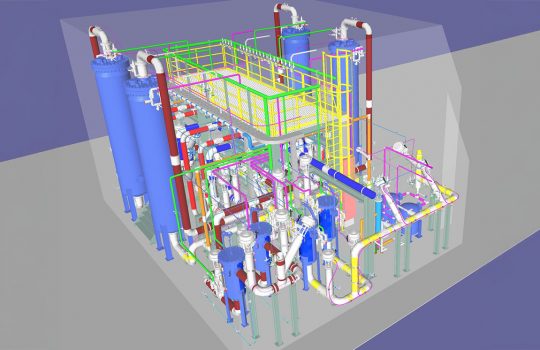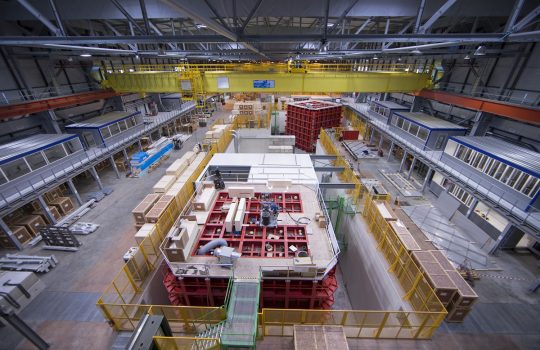The global neutrino physics community is coming together to develop a leading-edge, dual-site experiment for neutrino science called the Deep Underground Neutrino Experiment (DUNE), hosted at Fermilab in Batavia, Illinois. The facility required for this experiment, the Long-Baseline Neutrino Facility (LBNF), will comprise the world’s highest-intensity neutrino beam at Fermilab and the infrastructure necessary to support massive cryogenic detectors installed deep underground at the Sanford Underground Research Facility 1,300 kilometers away in Lead, South Dakota, as well as detectors at Fermilab.
Scientists from more than 175 institutions in 31 countries make up the DUNE scientific collaboration, which is conducting R&D and designing the experiment’s massive detectors. Two large prototype liquid-argon detectors (called ProtoDUNEs) are under construction at CERN and will be tested with that lab’s particle beam in the fall of 2018. And a high-level science and technology agreement was recently signed with the United Kingdom that supports participation by that country in LBNF/DUNE.
In parallel, Fermilab and the Department of Energy’s Office of Science have been working with international partners to develop and execute agreements that pave the way towards greater scientific collaboration, from the exchange of personnel to the joint design and delivery of components for accelerators and detectors.
In October 2016, Fermilab signed an agreement with the Australian Research Council’s Centre of Excellence in Particle Physics at the Terascale, a consortium of four universities. Since then, agreements that establish joint interest and activities in particle physics research have been signed by Fermilab with additional institutions including the Federal University of ABC in Brazil, the Johannes Gutenberg University of Mainz in Germany, the National Autonomous University of Mexico and the University of Colima in Mexico. A student exchange program was also established with the Instituto de Fisica Corpuscular in Spain.
And the pace of the development of new partnerships continues to increase. Two agreements were recently signed in the same week: The first on Oct. 17 between Fermilab and Canada’s York University establishing a joint faculty position; and the second on Oct. 19 with France’s Institute for Nuclear and Particle Physics, part of the country’s National Center for Scientific Research.
As construction continues for the laboratory’s Short-Baseline Neutrino program and ramps up for LBNF/DUNE, keep an eye on Fermilab’s website and Twitter feed for news of even more international agreements toward joint research in neutrino science.


